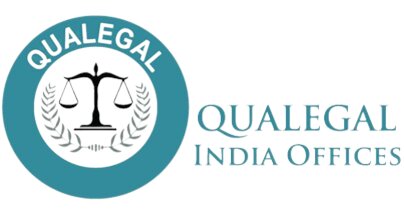Best Bankruptcy & Debt Lawyers in India
Share your needs with us, get contacted by law firms.
Free. Takes 2 min.
Or refine your search by selecting a city:
List of the best lawyers in India
India Bankruptcy & Debt Legal Questions answered by Lawyers
Browse our 2 legal questions about Bankruptcy & Debt in India and read the lawyer answers, or ask your own questions for free.
- Loans
- Currently I am multiple unsecured loans. Due to mental health issues I lost my job and all assets. So should I go for Individual bankruptcy?
-
Lawyer answer by Quartz Legal Associates
Based on the facts shared, it is explained that at present, individual bankruptcy in India is not governed by the Insolvency and Bankruptcy Code (IBC) because the provisions relating to ordinary individuals have not yet been implemented by the Government....
Read full answer - Sir, I have to take my payment from my customer party & he is not paying
- Sir, I'm doing textile business & have supplied fabric to my party amt is 4,12,536/00. My customer is not giving payment still he is capable.
-
Lawyer answer by Quartz Legal Associates
Based on the facts stated, it is my considered opinion that you have supplied fabric worth ₹4,12,536 to your customer in the ordinary course of your textile business, the goods have been duly delivered and accepted, and despite being financially...
Read full answer
About Bankruptcy & Debt Law in India
Bankruptcy and debt law in India is primarily governed by the Insolvency and Bankruptcy Code (IBC), 2016. The Code consolidates and amends laws relating to reorganization and insolvency resolution of corporate persons, partnership firms, and individuals in a time-bound manner. The objective is to promote entrepreneurship, improve the ease of doing business, and to protect the interests of creditors by ensuring maximization of value of the assets of insolvency debtors. The IBC also provides a specific platform for corporate insolvency resolution with an emphasis on debtor-driven proceedings.
Why You May Need a Lawyer
Engaging a lawyer for bankruptcy and debt-related issues is crucial in navigating the complex procedures and legal requirements. Common situations where legal help may be necessary include:
- Filing for insolvency under the IBC.
- Representation before the National Company Law Tribunal (NCLT) or Debt Recovery Tribunal (DRT).
- Advising on restructuring and settling debts with creditors.
- Assisting in understanding one’s rights and obligations under a bankruptcy declaration.
- Handling disputes with creditors or debt recovery agents.
- Ensuring compliance with statutory regulations during insolvency proceedings.
Local Laws Overview
The key legislation includes the Insolvency and Bankruptcy Code, 2016, the Recovery of Debts Due to Banks and Financial Institutions Act, 1993, and the Securitisation and Reconstruction of Financial Assets and Enforcement of Security Interest Act, 2002 (SARFAESI Act). These laws are designed to ensure effective legal tools for recovery of debts and establishment of the procedure for insolvency resolution in India.
The IBC introduced the concept of a time-bound process for resolving insolvency, with the Corporate Insolvency Resolution Process (CIRP) being one of its main features, intended to prevent undue delay and value erosion of the debtor's assets.
Frequently Asked Questions
1. What is the Insolvency and Bankruptcy Code?
The Insolvency and Bankruptcy Code, 2016 is a consolidated law that governs the insolvency and bankruptcy process for individuals and businesses in India. It aims to minimize the time and cost of insolvency proceedings.
2. What are the key objectives of the IBC?
To promote entrepreneurship, enhance the ease of doing business, make available credit, and balance of interests of all stakeholders by maximizing the value of debtor's assets.
3. Who can initiate the insolvency process under IBC?
Insolvency proceedings can be initiated by financial creditors, operational creditors, or the debtor themselves.
4. What is the role of the NCLT in insolvency proceedings?
The National Company Law Tribunal (NCLT) is the adjudicating authority for all corporate insolvency resolution and liquidation processes under IBC.
5. How does personal insolvency differ from corporate insolvency?
Personal insolvency applies to individuals and partnerships, while corporate insolvency applies to corporate entities such as companies.
6. What is the Corporate Insolvency Resolution Process (CIRP)?
CIRP is a mechanism under IBC for resolving insolvency issues of a corporate debtor in a time-bound manner, generally within 180 days.
7. Can an individual file for bankruptcy in India?
Yes, individuals can file for bankruptcy when they are unable to repay their debts, aiming for a debt relief or restructure.
8. What does the moratorium period mean in insolvency proceedings?
During the moratorium period, creditors are prohibited from initiating any new action or continuing with current proceedings against the debtor or its assets.
9. What is the role of Insolvency Professional?
Insolvency Professionals manage the resolution process, take over the operations and function as an administrator for the corporate debtor.
10. How does the SARFAESI Act work with debt recovery?
SARFAESI empowers banks and financial institutions to auction residential or commercial properties to recover loans without the intervention of the court.
Additional Resources
Consider reaching out to the following resources for more information and assistance:
- Insolvency and Bankruptcy Board of India (IBBI)
- National Company Law Tribunal (NCLT)
- Local Bar Associations
- Debt Recovery Tribunals (DRT)
- Government Legal Aid Services
Next Steps
If you need legal assistance in bankruptcy and debt, consider the following steps:
- Consult a legal expert specializing in bankruptcy and debt laws to evaluate your situation.
- Prepare and gather all necessary financial documents and related information.
- Explore legal aid services if affordability is a concern.
- Research and choose a lawyer recommended for handling bankruptcy and debt cases effectively.
- Follow legal procedures carefully and attend tribunals or court hearings as required.
Lawzana helps you find the best lawyers and law firms in India through a curated and pre-screened list of qualified legal professionals. Our platform offers rankings and detailed profiles of attorneys and law firms, allowing you to compare based on practice areas, including Bankruptcy & Debt, experience, and client feedback.
Each profile includes a description of the firm's areas of practice, client reviews, team members and partners, year of establishment, spoken languages, office locations, contact information, social media presence, and any published articles or resources. Most firms on our platform speak English and are experienced in both local and international legal matters.
Get a quote from top-rated law firms in India — quickly, securely, and without unnecessary hassle.
Disclaimer:
The information provided on this page is for general informational purposes only and does not constitute legal advice. While we strive to ensure the accuracy and relevance of the content, legal information may change over time, and interpretations of the law can vary. You should always consult with a qualified legal professional for advice specific to your situation.
We disclaim all liability for actions taken or not taken based on the content of this page. If you believe any information is incorrect or outdated, please contact us, and we will review and update it where appropriate.
Browse bankruptcy & debt law firms by service in India
India Attorneys in related practice areas.
Browse bankruptcy & debt law firms by city in India
Refine your search by selecting a city.
















